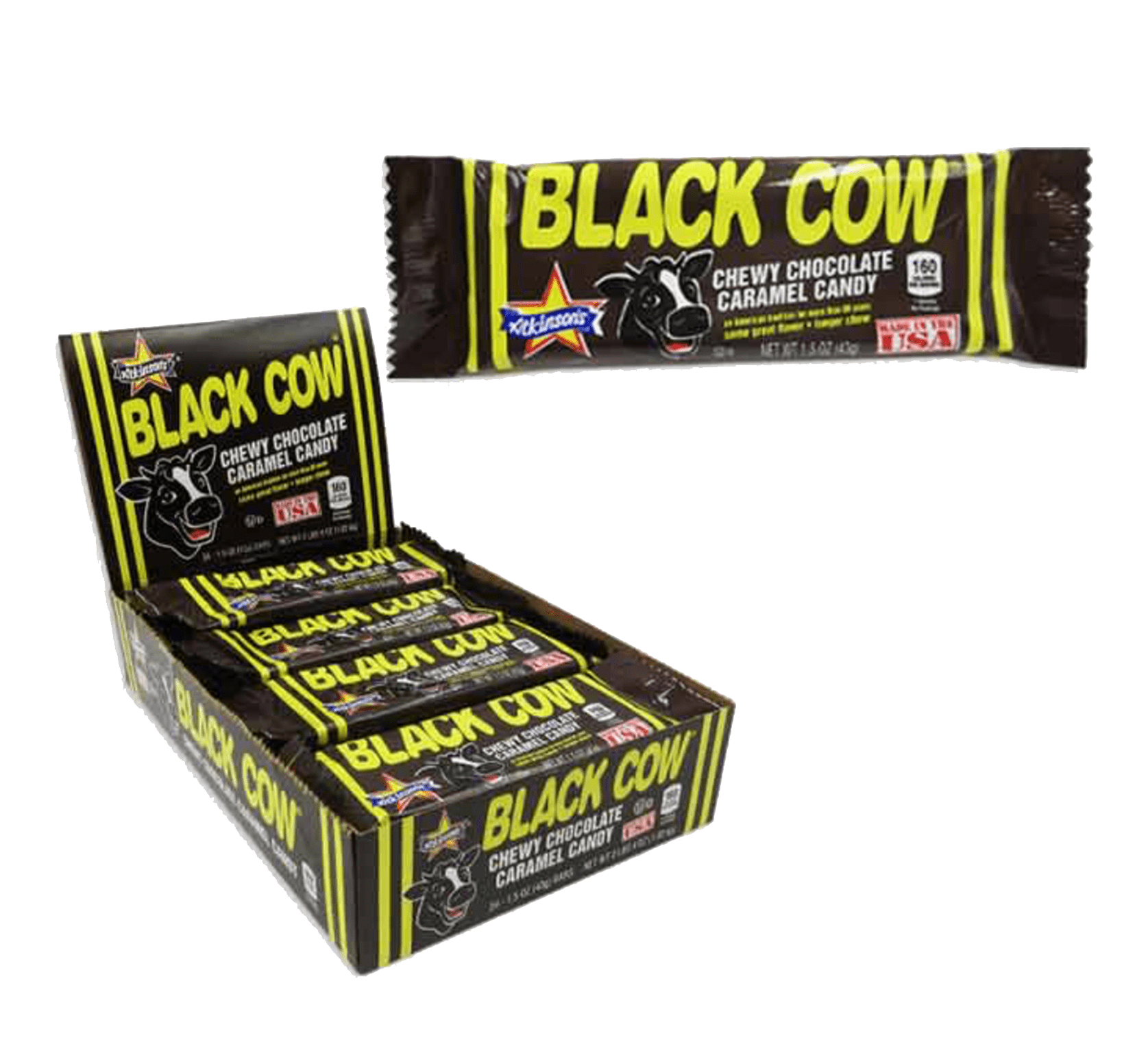Since you asked about the “Black Cow candy bar,” I assume you’re referring to The Black Cow candy traces its roots back to the 1920s, originally introduced by the Holloway Company in Chicago as a chocolate-coated caramel sucker, akin to a Sugar Daddy but dipped in chocolate. Marketed as a slow-eating treat, it was a companion to Holloway’s Slo Poke, sharing a similar caramel base. The name “Black Cow” likely nodded to a popular ice cream soda made with chocolate syrup and cola, though exact origins are murky. It gained traction through the mid-20th century, becoming a nostalgic favorite, especially among soldiers during World War II for its rich, chewy appeal.
By the 1970s, the stick version faded as production shifted away from the chocolate coating, and the candy disappeared for decades after Holloway’s assets were absorbed by companies like Nestlé around 1990. In 2011, the Warrell Corporation revived Black Cow under its Classic Caramel brand, reintroducing it as a chocolate-flavored caramel bar—sans stick or coating—capitalizing on nostalgia alongside Slo Poke’s return. In 2013, Atkinson Candy Company acquired the Black Cow line from Warrell, integrating it into their portfolio.
Today’s Black Cow is a 1.5-ounce bar of chewy, chocolate-infused caramel, kosher and gluten-free, but it differs from the original sucker. Fans of the old version often lament the loss of the distinct chocolate shell, though it retains a loyal following for its unique flavor, bridging decades of candy history.



Reviews
There are no reviews yet.